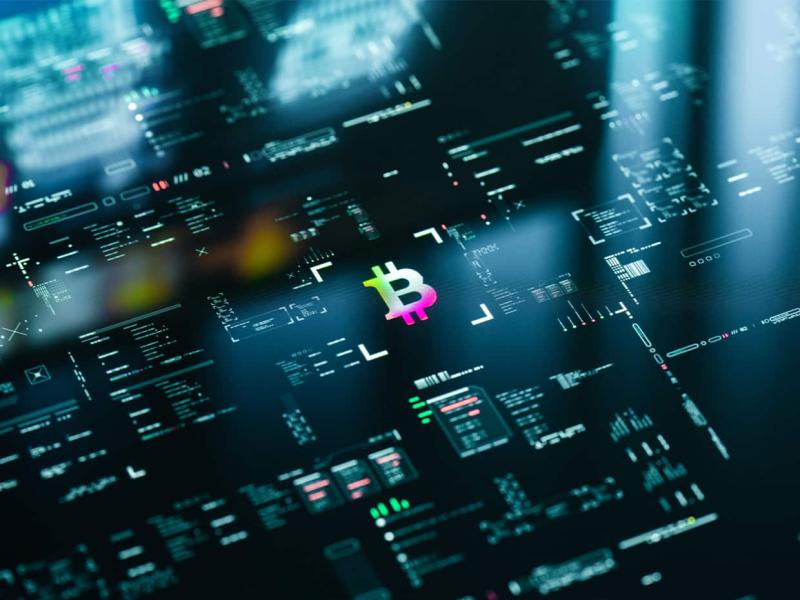The introduction of blockchain not only provides users with indisputable verification of transactions, it also allows for the recording, execution, and auditing of transactions, as well as automating contracts in real time on distributed ledgers. The evolution does not just stop at the assets themselves; the innovative qualities of this new frontier also extend into how these assets are managed and stored.
Since the introduction of contactless cards and mobile payment services, the use of currency around the world has been driven deeper into the digital space. In an age where physical cash is being used less and less, cryptocurrency and digital assets are seemingly the next step in the evolution.
As these digital assets progressively expand outward from financial services, and into other sectors, it is imperative for businesses to actively consider these newfound options. With a plethora of possibilities to choose from, blockchain, cryptocurrency, and digital assets represent a new area of potential opportunities for businesses to grow and take charge of their futures in an increasingly digital world.
Blockchain is a type of distributed ledger technology that promises to provide an immutable record of transactions. A blockchain is comprised of transactional records, with each record being known as a ‘block’. Each block is irreversibly locked into the chain, with a timestamp and the transaction data, meaning that each transaction should be verifiable and protected from manipulation. This is done through different cryptographic methods, such as digital signatures, which allows the detection of any changes made to the data since the signature was made.
Most blockchains are managed by peer-to-peer networks in which all peers follow the same protocol that details the rules for the blockchain, such as how peers should communicate with each other and how new blocks are created. Changing the data in a block is a complex and difficult process; any changes made to a block requires all the following blocks to change as well. In order to do this, the majority, if not all, peers need to agree to the change, thereby protecting the blockchain from bad actors.
Common risks for businesses and individuals to consider while operating using blockchain technology:
- Regulations apply differently on a blockchain.
- Blockchain operates in a wide variety of frameworks, with very little standardisation.
- Most governments around the world are yet to pass and enforce blockchain regulation.
- Potential for user error in blockchain management. Since blockchains operate as decentralised networks and do not
- have retrieval, each user is responsible for maintaining their access to the blockchain and not losing their passwords.
- Uncertainty around taxation.
Cryptocurrency is a form of digital currency that, unlike conventional money, only exist within a virtual space. Cryptocurrencies are mostly decentralised, managed by a peer-to-peer system without a central issuing or regulating authority. Each cryptocurrency is usually managed through an encrypted, online, distributed ledger system, mostly through a blockchain. Similar to blockchain technology, cryptocurrencies are encrypted to ensure that they aren’t liable to fraud or counterfeiting, as well as providing safe and verifiable transactional data. Well-known cryptocurrencies include Bitcoin, Ethereum, and Tether, with each one having its own markets, applications, and protocols.
Despite the benefits that come with cryptocurrencies, there are still risks that businesses should consider before investing in cryptocurrency. Some common risks include:
- Many cryptocurrencies have a high volatility and are prone to extreme fluctuation in value.
- Users can run the risk losing their cryptocurrency assets through user-error, such as forgetting passwords or incorrect sending addresses, since there is no way to reverse or cancel a cryptocurrency transaction.
- Many cryptocurrencies have an inequality in their distribution, with the most popular ones being held by a small number of people. The addresses with the largest shares of a cryptocurrency therefore have a large influence over their respective cryptocurrency markets.
- Cybersecurity operational risks.
- Since most cryptocurrency transactions are recorded on the blockchain, they share many of the same risks.
- ESG risks due to the power consumption of trading and mining certain cryptocurrencies.
Digital assets refer to any assets that exist within a digital, rather than physical, medium. As with all assets, a digital asset’s value is derived from a claim of ownership. Many associate digital assets with cryptocurrencies and Non-Fungible Tokens (NFTs), but physical assets can also be tokenised and traded on a blockchain. Assets such as gold, oil, real estate, and more can be traded as digital assets, which has the potential to open up ownership opportunities to a wider range of potential investors.
Common risks for businesses to consider when using digital assets:
- High potential for price volatility, depending on the asset.
- Cybersecurity risks since all assets are digital and therefore potential targets for hackers.
- Many digital assets are traded on 24/7 markets, where high-frequency trading is made necessary due to the volatility of certain assets.
- There are concerns about collateralisation behind digital assets.
- Potential for fraud and unreliable transactions.
Introduction to Blockchain

"The killer feature that makes blockchain so transformative is this idea that it is immutable...and that just means that once you write the information into the blockchain, it can't be edited ever again - it's there permanently."
Jay Schulman
Principal, National Leader of Blockchain and Digital Assets
United States




